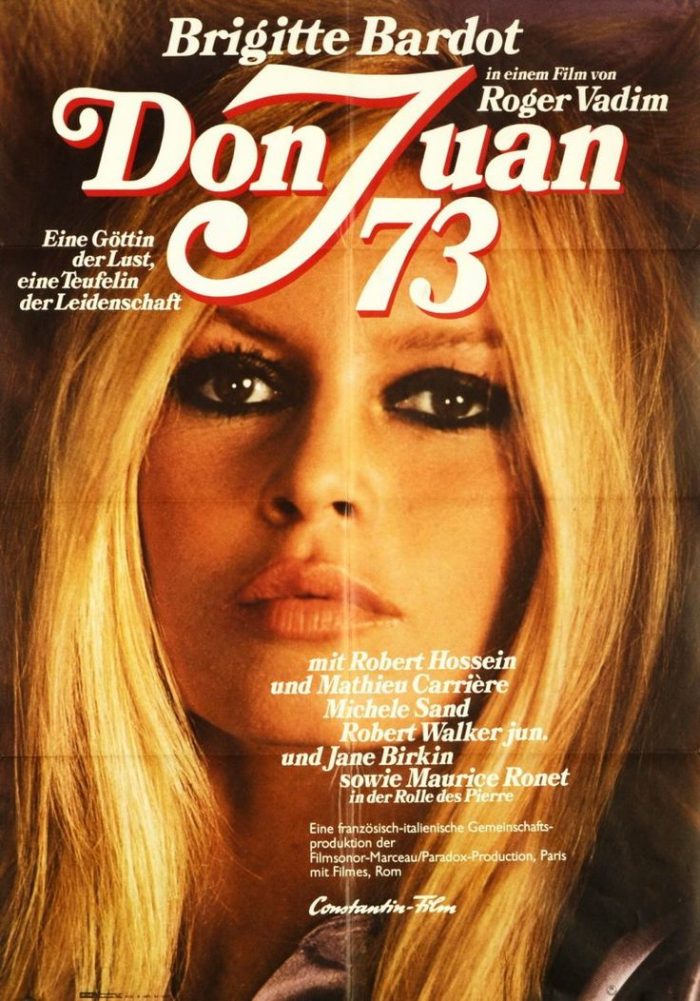I recently read the elephant journal article “Spiritual Dos and Don’ts of Dating a Woman” and it left me with that squidginess in my gut I like to call the No Feeling.
I’m not going to deny that women should be treated well in relationships, and yes, it is undeniably inappropriate to pull your dick out after giving a woman a bodywork treatment. I’m just not sure that starting from that place is really the best way for us to talk about evolving as a human species.
For too long, women have been stereotyped as long-suffering Goddesses who must be worshiped and cared for and given constant orgasms for all the work we’ve done over the centuries while men have been running around having all the fun. Are women really so one-dimensional that they must be treated as a super-species entity that has no flaws and no spiritual work to do?
You can take it from a woman who has made her share of really stupid relationship mistakes, many times, on the path of her spiritual growth. I have tried to trade sex for intimacy, I have cried and begged at the feet of men who made me feel like emotions were the silliest things to indulge in (yup, just like my dad), and I’ve pulled away from kind, affectionate men because I thought emotions were the silliest things to indulge in (really, I’m a lot like my dad). I’ve made myself out to be the victim, I’ve cried out at the universe for making men such stupid, cruel creatures. As long as it’s all men’s fault, I’m absolved of responsibility, so I don’t have to evolve.
Then I realized that hey, actually, I was the one making those choices. I’m the one that has told the stories about those relationships, and the only one who can do better by me is me.
I used to take a resentful pleasure in seeing men being stereotyped as simians with their brains located in their “dicks.” Now, though, I realize that those stereotypes are all about keeping both men and women from feeling like there’s no way we can be better than the boxes we’ve been put in. We are all participating in a culture that wants us to feel powerless.
Take, for example, the movie Knocked Up. Star Katherine Heigl infamously commented at the time:
It paints the women as shrews, as humorless and uptight, and it paints the men as lovable, goofy, fun-loving guys. It exaggerated the characters, and I had a hard time with it, on some days. I’m playing such a bitch; why is she being such a killjoy? Why is this how you’re portraying women?
Heigl got in big trouble for saying this, and fair enough, it’s not super profesh to speak badly about a movie you are starring in, but she was right, and not only about the negative portrayal of women. Men are badly stereotyped in this movie as well.
Knocked Up is a great example of archetypes we are virtually soaked in. Most sitcoms about “everyday life” portray beautiful, intelligent women married to an immature caveman of a husband. Always hilarious to watch that real-life scenario, right? We’re talking The Flintstones, the Simpsons, King of Queens, Family Guy, According to Jim and a bunch of others I found out exist that I’ve never heard of.
Slate.com has an article on this perpetual archetype, and suggests that these sitcoms may not be appealing only to male desire. Perhaps the ultimate male fantasy is not seeing yourself as a clueless baby man with a hot wife, after all. Matt Feeney writes:
The war of the sexes has shifted from the workplace back to the household and the bedroom. In portraying husbands as lousy parents, marginal breadwinners, and repellant sexual partners, the fat-husband sitcoms convey a persecution fantasy that rises from the same swamp of resentments as these books [including The Bitch in the House] do: “Yes, I’m supercompetent and I even look great, despite all the crap I have to deal with, and, yes, that’s my husband over there, the fat, useless one scratching his nuts.”
We like to think, as yogis, that we are somehow above the stereotypes we see on prime-time TV, that we are somehow higher on our spiritual paths, and have thus figured out all the issues we have with our own gender and that of the perpetual other.
The truth is, the best we can be doing is working on it, and humbling ourselves to our participation in the mythologies, baggage and stereotypes that will arise when trying to negotiate any human relationship.
I remember, after a particularly exhausting breakup, I thought: “my god, I am so tired of learning from all the breakups. I would like to be done learning and just have a nice relationship please.” That was certainly wishful thinking—the learning is never done, especially if you are lucky enough to find a person who’s willing to do the work with you.
I did get lucky there: I’m with someone now who is affectionate, intelligent, mature, kind and loving. It’s not perfect: I still have the urge to push him away. I still expect him to abandon me. I still put him down sometimes so he fits into the stupid/cruel/immature/dick-centric box we’ve thrown men into for so long it’s become an impulse. He has his baggage too.
The difference is that we talk about it. We apologize, we work on it, we fight, we make up and we both get better at this. The truth is, we all live in a world that is saturated by stereotypes, and it takes a lot of consciousness and courage to break yourself out of these boxes and stop stuffing yourself back in.
So let’s be a little more careful about how we talk about each other, and especially when we start telling each other what to do. You are the only one that can do your work, but we still need each other to be open, intelligent, compassionate, accepting, and yes, sometimes critical, but with the kind of humility that helps us work together, instead of all alone in these cramped little boxes.
~
Ed: Kate Bartolotta












Read 15 comments and reply